Cats are mysterious, independent creatures, but they also have their fair share of dislikes when it comes to their human companions. As much as we love our furry friends, sometimes our actions or habits can drive them crazy! Let’s explore 13 things we do that our cats absolutely hate – and what we can do about it.
1. Ignoring Their Space

iStock/Suriyawut Suriya
Cats are incredibly territorial and highly value their personal space. When humans invade their quiet spots, it can cause stress and anxiety. For example, if we constantly pick them up, crowd their favorite hiding spots, or push them into situations they’re not comfortable with, they’ll often retreat or display signs of aggression. Cats love to have a safe zone where they can rest without interruption. If you respect these spaces and let your cat come to you when they’re ready, it will lead to a more harmonious relationship. Let them enjoy their downtime without constantly being in their face.
2. Being Loud
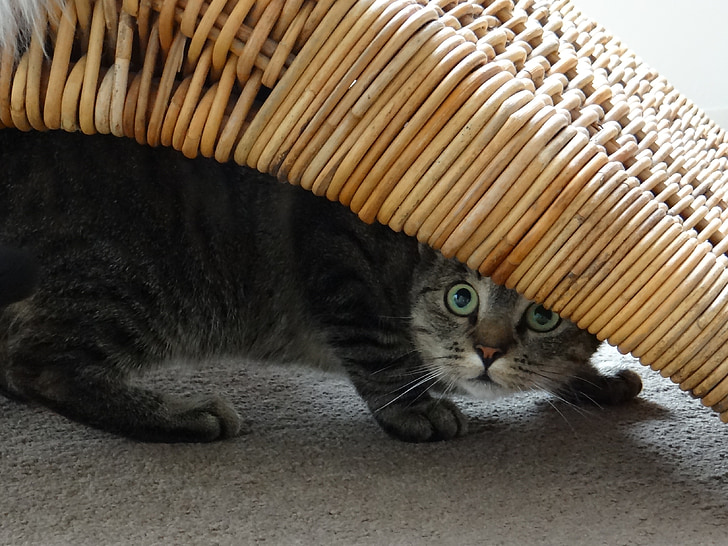
PickPik
Loud noises are one of the quickest ways to irritate a cat. While we might not notice how loud we are, cats have an incredibly sensitive hearing range, much broader than ours. What may feel like normal talking or laughing can sound like shouting to them. And don’t get them started on the vacuum cleaner! Sudden loud noises can cause cats to feel stressed and anxious. Try to keep your home environment peaceful by using a softer tone and being mindful of the sounds around them. Reducing the volume of household activities can help your cat feel safe and calm.
3. Forcing Interaction
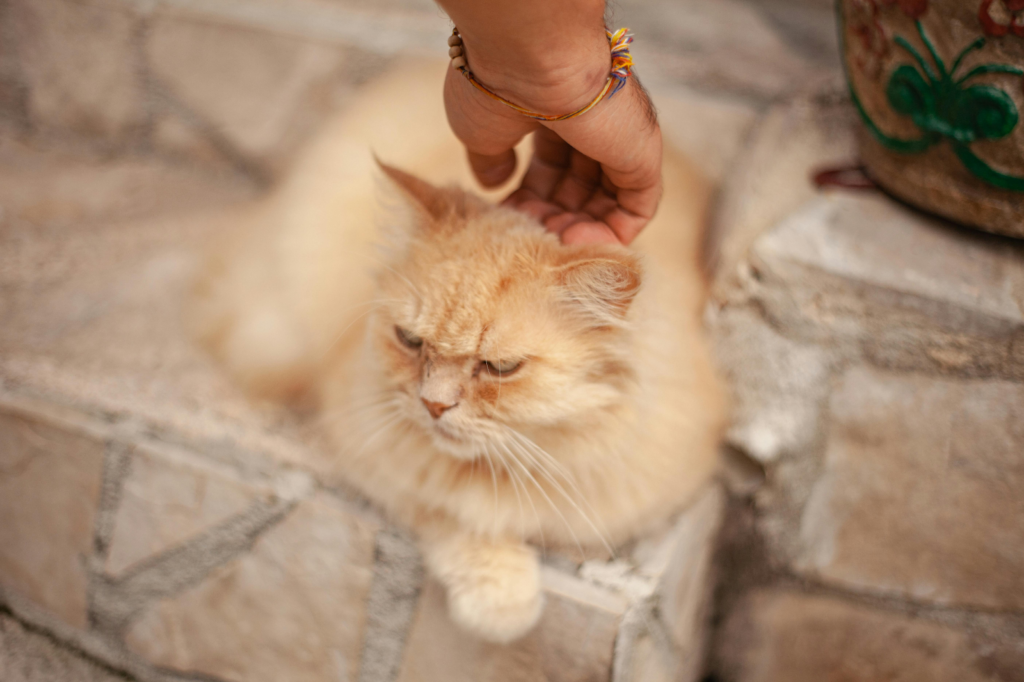
Pexels
Cats are not like dogs who crave constant attention. They enjoy their independence and need personal space. When humans try to force interactions like cuddling or picking them up when they’re not in the mood, it can lead to frustration. Instead, cats prefer to be the ones to initiate affection. If they approach you for petting or cuddles, that’s the time to indulge in some quality bonding. Forcing them into uncomfortable situations can lead to them avoiding you or becoming more distant. Understanding their moods and respecting their boundaries will create a more trusting and balanced relationship.
4. Not Cleaning Their Litter Box Regularly

iStock/Andrey_Kuzmin
A dirty litter box is one of the fastest ways to annoy a cat. Cats are very clean animals and prefer to have their litter box maintained regularly. When their box is dirty, they might refuse to use it, and you may find them avoiding the area entirely. A soiled litter box can cause stress and discomfort for your cat. It’s important to scoop it out daily, change the litter regularly, and ensure the box is in a quiet, accessible location. A clean litter box means a happier cat, and it’ll also keep your home smelling fresh.
5. Giving Them Too Much Attention at the Wrong Time
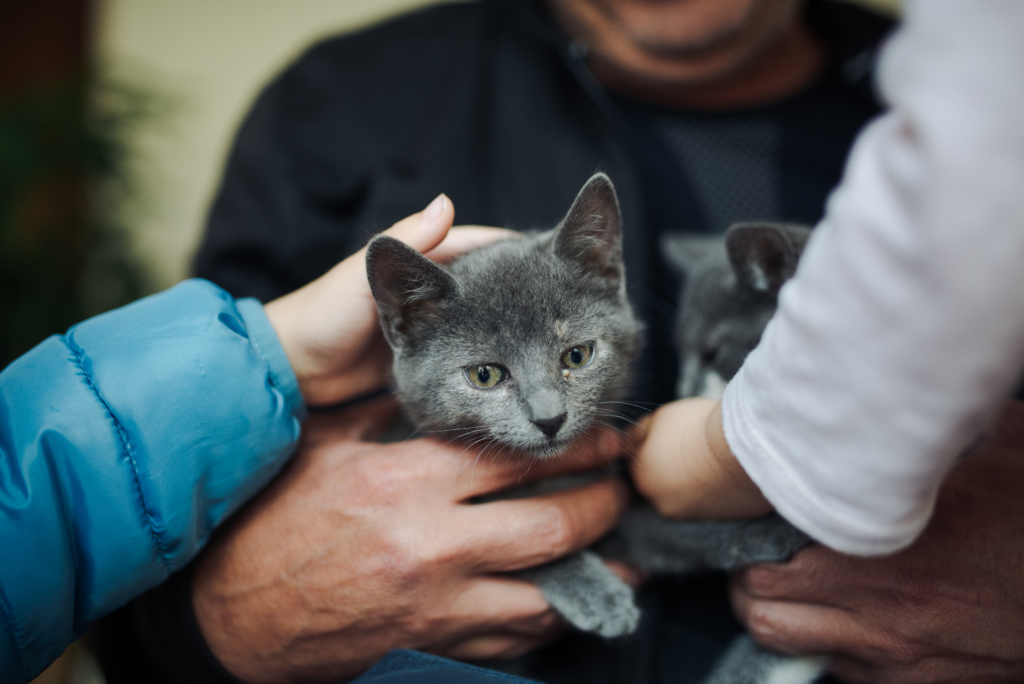
Wikimedia Commons
Just like us, cats have their moods and need their personal space. Giving them too much attention when they’re trying to rest or focus on something can be disruptive. If your cat is lounging peacefully, trying to relax, or is absorbed in watching birds outside, it’s best not to interrupt. They’ll come to you when they want affection. If you constantly try to engage with them during their downtime, they’ll likely get irritated. Respecting their need for quiet time shows them that you understand their boundaries, and they’ll appreciate the peaceful moments in your home.
6. Not Keeping Their Food and Water Fresh
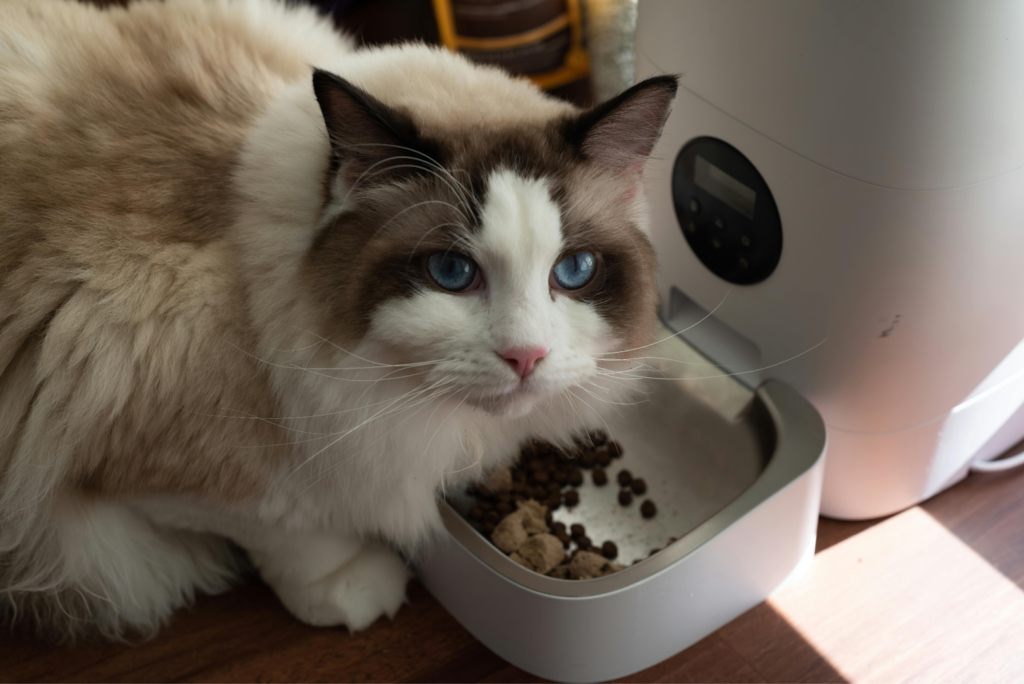
Pexels
Cats are very particular about the freshness of their food and water. If their bowl sits around for too long, or the water becomes stale, they might not bother eating or drinking. Cats prefer fresh, clean food, and this goes for water too. To keep them happy and hydrated, make sure to change their water frequently, clean their bowls regularly, and avoid leaving food out for too long. You might also want to try a water fountain, which many cats enjoy more than stagnant water. Keeping their feeding station clean and fresh is essential for their well-being.
7. Bathing Them
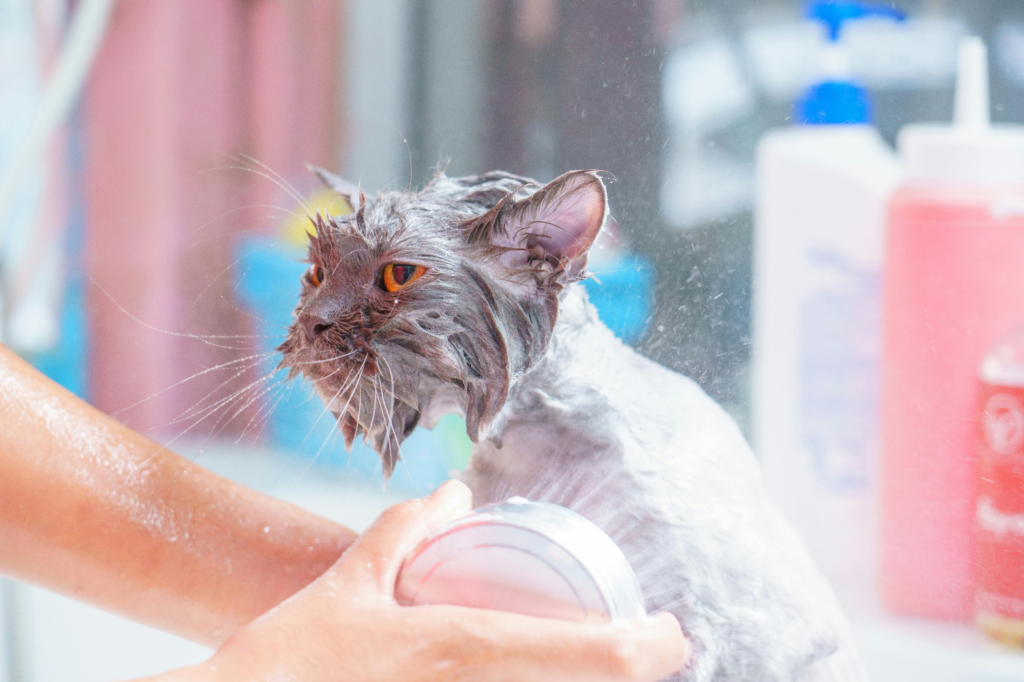
Pexels
While many cats love to groom themselves, they are not fans of being bathed. The sensation of water on their fur, along with the unfamiliar handling, can stress them out. Cats tend to get agitated during bath time, and they often associate it with unpleasant experiences. Unless it’s absolutely necessary, such as in cases of skin conditions or severe dirt buildup, it’s best to skip the bath and let your cat do their own grooming. Regular brushing can help with shedding and keeping their fur healthy without the need for a full bath. Avoid subjecting them to unnecessary stress.
8. Taking Them to the Vet
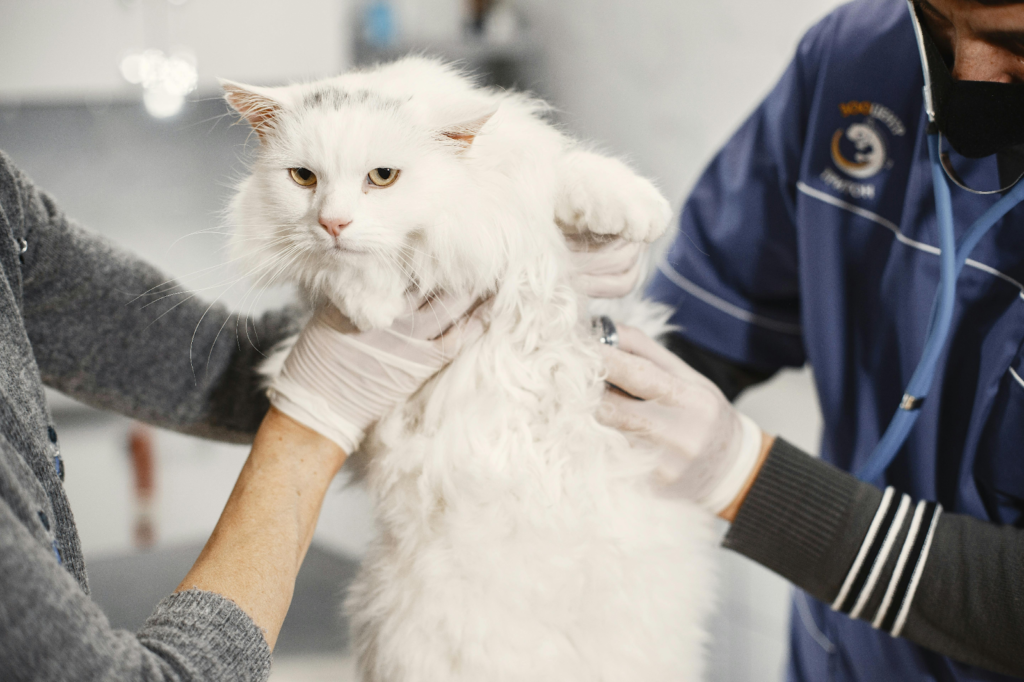
Pexels
One of the least favorite activities for most cats is visiting the vet. From the car ride to the strange smells and the handling by unfamiliar people, it’s a stressful experience for them. Cats may associate vet visits with discomfort, and it can make them anxious just thinking about it. While regular checkups are essential, try to make the experience as comfortable as possible by using a carrier your cat feels secure in. Also, use a calming pheromone spray to help soothe them before and during the visit. Positive reinforcement after the appointment, like extra playtime or treats, can help make the experience less negative.
9. Staring at Them Too Long
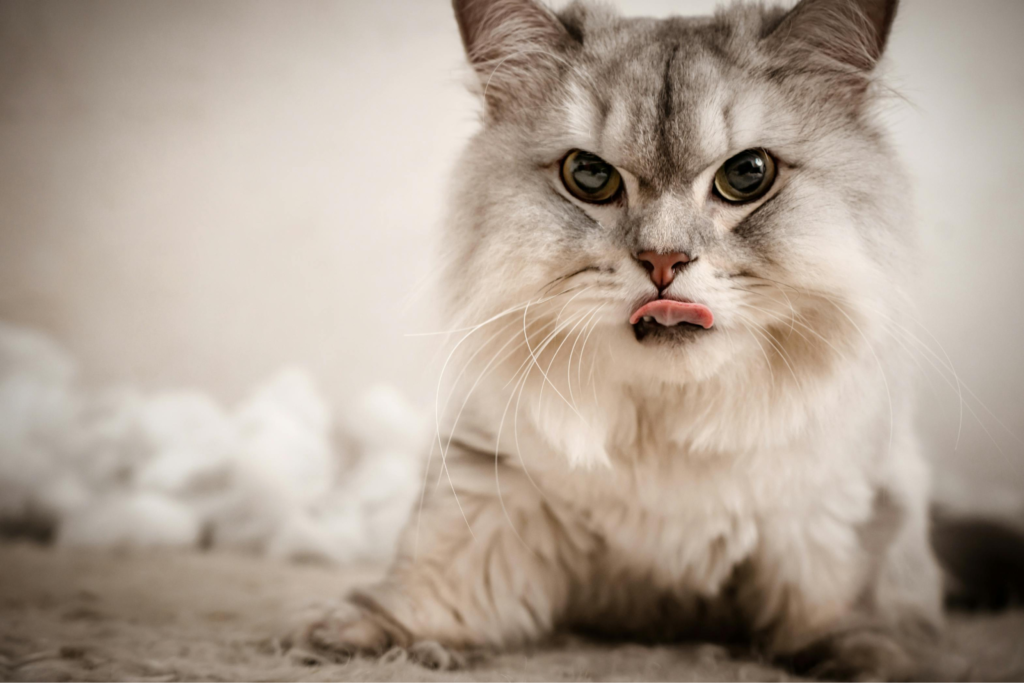
Pexels
When humans stare directly at a cat for extended periods, it can make them feel threatened. Cats often interpret prolonged eye contact as a sign of aggression, and they may respond defensively. Instead of holding intense eye contact, try to blink slowly at your cat. Cats see this as a sign of trust and affection. A slow blink is their way of saying, “I’m not a threat.” If you want to show your cat you’re friendly, use this simple gesture, and they’ll be more likely to feel comfortable around you.
10. Not Having a Scratching Post
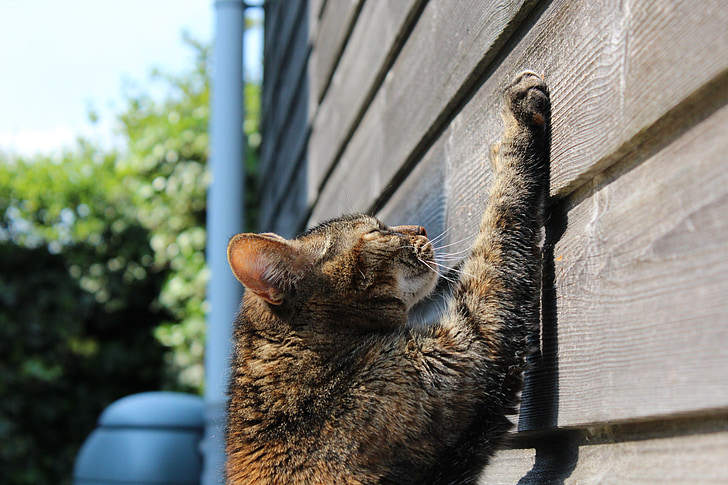
PickPik
Scratching is a natural and essential behavior for cats. It helps them stretch, keep their claws healthy, and mark their territory. When humans fail to provide a proper scratching post or area, cats often take matters into their own paws, scratching up furniture, carpets, or walls. Not only is this frustrating, but it can also damage your belongings. To avoid this, make sure to provide a variety of scratching posts, pads, and toys. These can help redirect your cat’s natural scratching instincts and keep your furniture safe from their claws.
11. Sudden Movements
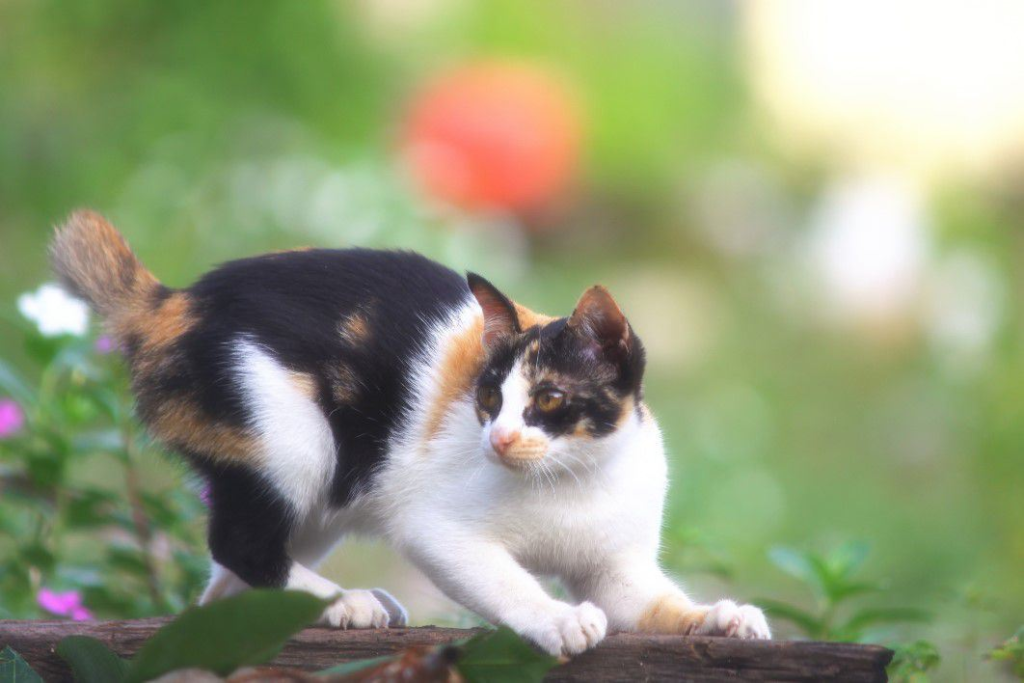
NegativeSpace
Cats are prey animals, and their instincts make them wary of sudden movements. Quick gestures, running toward them, or reaching out suddenly can startle them and cause stress. Abrupt movements might even trigger a fear response, making them flee or hide. To avoid scaring your cat, move slowly and deliberately around them. Let them see your hands and movements coming, especially when approaching them. This can make them feel more secure and reduce any anxiety caused by sudden actions. A calm, gentle approach goes a long way in maintaining a peaceful environment for your cat.
12. Not Giving Them Enough Mental Stimulation
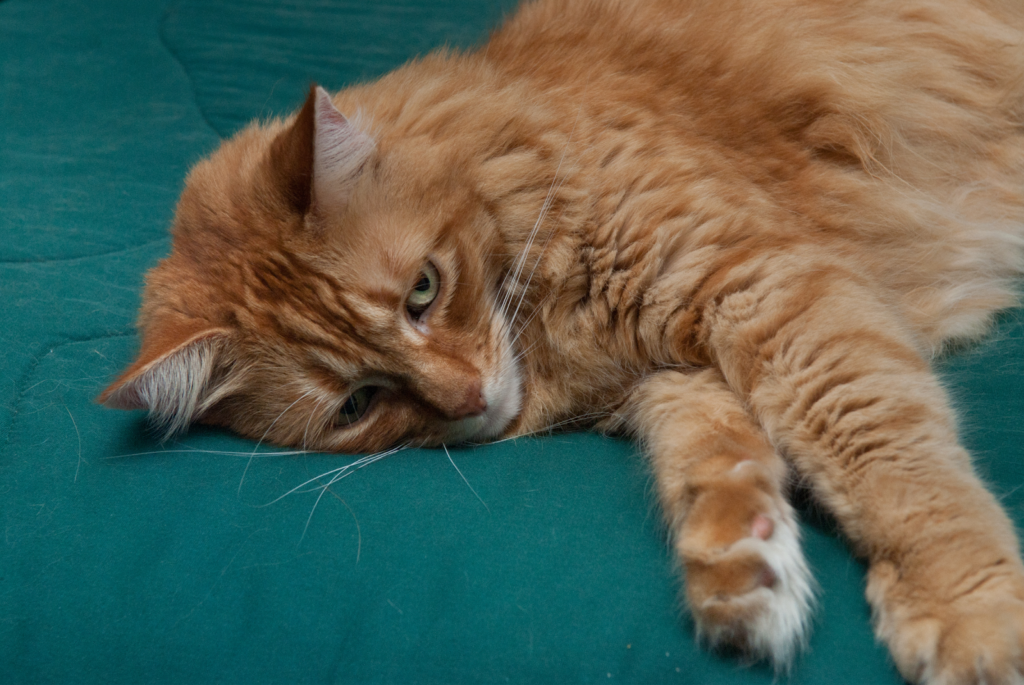
Wikimedia Commons
Cats are highly intelligent creatures, and without enough mental stimulation, they can become bored or even depressed. A bored cat is more likely to exhibit destructive behavior, like scratching, chewing, or excessive meowing. To keep your cat engaged and happy, offer a variety of stimulating toys, puzzle feeders, and interactive activities. Cats love to chase, hunt, and problem-solve. You can even try training them to perform simple tricks, like sitting or giving a paw. Keeping their minds active helps 0prevent boredom and ensures they’re mentally and emotionally fulfilled.
13. Overfeeding Them
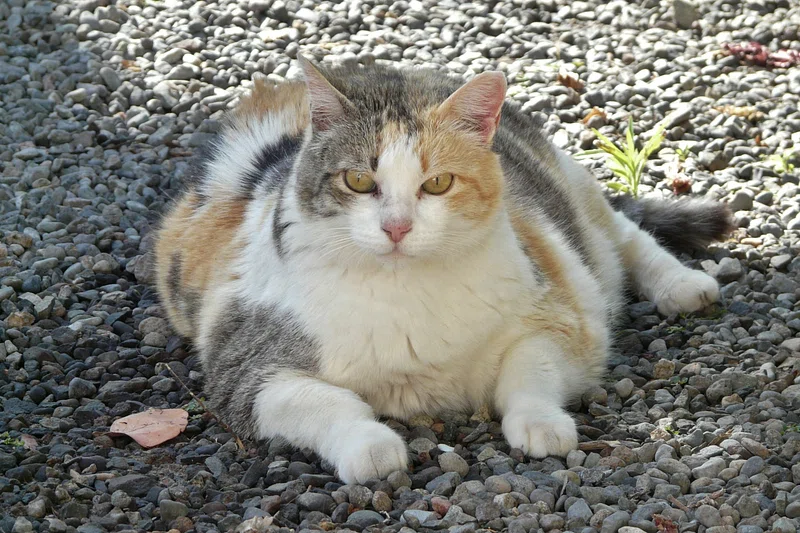
Rawpixel
It might be tempting to spoil your cat with extra treats or overfill their food bowl, but overfeeding can lead to obesity and other health issues. Cats tend to eat whatever is available, and without portion control, they can easily overeat. Obesity is a growing concern for cats, as it can lead to joint problems, diabetes, and other serious health conditions. To maintain a healthy weight, measure out their food portions and avoid giving too many treats. Encouraging regular playtime can also help keep them active and prevent overfeeding, ensuring they remain fit and healthy.
By being mindful of these 13 things, you can help your cat live a happier, more relaxed life. Cats may be independent, but they appreciate a considerate and understanding human companion.


